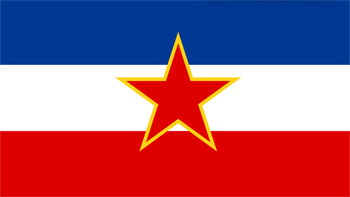The land known as Yugoslavia, once a prominent country in southeastern Europe, has a history as complex as its cultural tapestry. The story of Yugoslavia is one of political intrigue, cultural diversity, and a series of conflicts that reshaped the Balkan region. Understanding Yugoslavia's past is crucial to comprehending the current dynamics of the Balkan states and the broader European context.
The Formation of Yugoslavia
Yugoslavia's formation in the aftermath of World War I marked a significant reorganization of national borders in Europe. The Kingdom of Serbs, Croats, and Slovenes was established in 1918, uniting several ethnic groups under one flag. The idea was to create a single, Slavic-majority state that could stand strong against both eastern and western European powers. However, this unification brought together a diverse array of peoples with distinct languages, religions, and cultural identities, setting the stage for future tensions.
World War II and Its Impact
World War II was a turning point for Yugoslavia. The region was invaded and divided by the Axis powers, leading to the rise of various resistance movements. The most significant of these was the Partisan movement led by Josip Broz Tito, a Communist. The Partisans' successful resistance against the Axis powers gained them significant popularity, and post-war, Tito established the Socialist Federal Republic of Yugoslavia, bringing a unique form of communism that was independent of Moscow's control.
The Tito Era and Yugoslav Identity
Under Tito's leadership, Yugoslavia experienced relative stability and economic growth. Tito's regime promoted 'Brotherhood and Unity' among the diverse ethnic groups, attempting to forge a cohesive Yugoslav identity. This period saw significant industrialization, social reforms, and a non-aligned foreign policy, which positioned Yugoslavia uniquely during the Cold War era. However, Tito's authoritarian rule suppressed nationalist sentiments and ethnic tensions, which were simmering beneath the surface.
The Economic Challenges and Rise of Nationalism
In the 1980s, after Tito's death, Yugoslavia faced significant economic challenges, including high inflation and unemployment. These economic troubles exacerbated ethnic tensions and nationalist sentiments. Leaders of various Yugoslav republics started advocating for more autonomy, which further destabilized the federation. The rise of Slobodan Milošević in Serbia and his nationalist agenda catalyzed further divisions, fueling fears and animosities among the different ethnic groups.
The Breakup of Yugoslavia and Ensuing Conflicts
The eventual disintegration of Yugoslavia began in the early 1990s, as several republics declared independence. This led to a series of conflicts, most notably the Croatian War of Independence, the Bosnian War, and the Kosovo conflict. These wars were marked by ethnic violence, atrocities, and the tragic phenomenon of ethnic cleansing. The international community intervened multiple times, leading to various peace agreements and the eventual establishment of several independent states.
The Aftermath and Legacy of Yugoslavia
The dissolution of Yugoslavia left a complex legacy in the Balkans. It led to the creation of new nations, each grappling with its own identity and the challenges of post-conflict reconstruction. The wars of the 1990s left deep scars in the region, with lingering ethnic tensions and unresolved political issues. The legacy of Yugoslavia continues to influence the political, economic, and cultural landscape of southeastern Europe. The story of Yugoslavia is a powerful reminder of the consequences of nationalism and ethnic divisions, as well as a testament to the resilience of its people.
In conclusion, the history of Yugoslavia is a fascinating study of a multi-ethnic country's rise, fall, and the enduring impact on its successor states. As the Balkan region continues to evolve, the lessons from Yugoslavia's history remain relevant, offering insights into the challenges of nation-building, the dangers of ethnic nationalism, and the importance of fostering understanding and cooperation among diverse communities.
